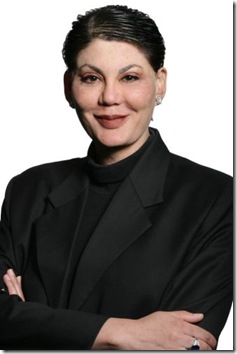
Denton Wilde Sapte, the UK legacy firm of SNR Denton, is suing the former head of its India group Gauri Advani, who is alleged to have been involved in an illegal act, reported The Lawyer magazine today.
The firm and its insurer Travelers are taking action against Advani (pictured) for £779,000 in a bid to recover costs resulting from an earlier claim brought against her and Dentons by travel agents Romy Nayyar and Paramjit Kang.
According to the judgment that was handed down on that preceding case on 16 December 2009, Advani was found to have arranged for the claimants to pay a £400,000 bribe so that they might obtain exclusive rights to sell Air India flights in the UK and Ireland.
It is alleged that the claimants did not obtain the rights and the sum was not recovered. In the judgment, Mr Justice Hamblen dismissed the claim on the grounds of illegality and Nayyar and Kang were ordered to pay costs, which Dentons argues have not been paid in full.
However, Christopher Coffin, head of litigation at Withers, who is acting for Advani, said his client “denied she arranged for a bribe to be paid” and that the current claim would be “vigorously defended”.
Dentons and Travelers have instructed Gabrielle Kaiser, associate director at Barlow Lyde & Gilbert. They allege that “by the use of her DWS [Dentons] business card, email address and headed notepaper […] Advani wrongly held herself out to the […] Claimants as acting in and within her capacity as a solicitor employed by DWS […]. Advani therefore wrongly introduced and increased the risk of the […] Claimants pursuing a claim against DWS.”
An SNR Denton spokesperson commented: “Our position has always been that Advani acted outside her authority and without our knowledge. The judgment in the previous case in this matter found that the travel agents who brought the suit were not clients of the firm, that we had no knowledge of what Advani was doing and that she did not act in the course of her employment.”
Advani left Dentons in 2007 to become head of the India group at Eversheds. She left the latter firm on 31 May this year and is not thought to be currently practising as a solicitor. Chair of Eversheds’ India group Parmjit Singh said: “[Advani] wanted to pursue other opportunities and left with our best wishes. We thank her for her contribution while she was with us.
“She was obviously very well-connected in India and helped raise the profile of the group and introduce us to her connections.” Advani could not be contacted for comment.
The above article was first published in the UK’s The Lawyer magazine.
Legally India understands that in the case Advani was advised not to give any evidence herself, which prejudiced her case because therefore no evidence was presented and available to the court that could contradict the claimants' and Dentons' version of events.
The judge had held: “Shortly before Ms Advani was due to open her evidential case and to be called her counsel advised the Court that it had been decided that she would be proffering no witness evidence. It follows that her witness statements have no evidential status save to the extent that they had been put to and accepted by other witnesses. It also follows that Ms Advani advances no witness evidence to counter that of the Claimants' and DWS' witnesses. She can rely on documents to counter that evidence and answers procured in cross examination, but has no witness evidence to set against it.”
After considering case law on whether adverse inference could be drawn from silence and the facts of this case, the judge concluded: “I therefore consider that this is a case in which I would be entitled to draw adverse inferences against Ms Advani from her failure to give evidence. However, of far greater weight, in my judgment, is the fact that on a number of issues there is simply no evidence to set against that given by the Claimants and DWS's witnesses.”
The full judgment in that case is available for download at bailii.org.
threads most popular
thread most upvoted
comment newest
first oldest
first
. The chambers own website manifestly demonstrates this by stating that : 29.02.12
" Eminent Judge Joins Serle Court’s ADR Panel Serle Court is delighted to announce that Sir Raymond Jack, former High Court judge in the Queen’s Bench Division, has joined the Alternative Dispute Resolution Panel as an arbitrator. "
In Para 11 Mr Justice Hamblen stated that " As a matter of substance and reality the “winner” was Ms Advani whose defence has succeeded. Further, the reason that it was successful was that the Claimants knowingly and intentionally participated in the illegal transaction. That was their choice and responsibility. "
In Para 19 Mr. Justice Hamblen states that : "Given that I have not accepted the Claimants’ submission that Ms Advani should pay their costs, there can be no question of her being ordered to pay DWS’s costs. In any event, I would not have regarded this as an appropriate case for such an order. It was the Claimants’ own decision to involve DWS and their claim against them has wholly failed."
www.hindustantimes.com/...mosque.../story-ClfieBFgQwSdOsly1qXMxN.html
7 hours ago - The Supreme Court on Wednesday ordered Advani and other BJP leaders to face trial in Babri mosque demolition case.
THIS IS HOW THE UPA-II AND CONGRESS PARTY TRIED BUT FAILED !!
threads most popular
thread most upvoted
comment newest
first oldest
first